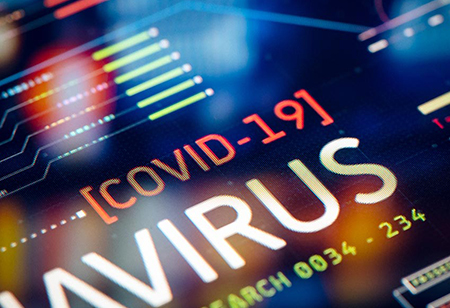How to Protect Your Business from Cyber Threats Post Pandemic
By Sthitaprajnya Panigrahi
 The coronavirus crisis has compelled human civilization to be extremely dependent on the digitized world. As the large industries instructed their workforce to function from their home, the employees rely upon the internet which is neither private nor secure. This has exposed the vital information of the organization out in the open network which is accessed by almost everyone raising concerns of data theft and cyber crimes. The hackers have also taken the privilege of the worldwide panic and chaos and have reportedly attacked unsuccessfully on the World Health Organization (WHO), as per the American news website The Hill.
The coronavirus crisis has compelled human civilization to be extremely dependent on the digitized world. As the large industries instructed their workforce to function from their home, the employees rely upon the internet which is neither private nor secure. This has exposed the vital information of the organization out in the open network which is accessed by almost everyone raising concerns of data theft and cyber crimes. The hackers have also taken the privilege of the worldwide panic and chaos and have reportedly attacked unsuccessfully on the World Health Organization (WHO), as per the American news website The Hill.
These hackers are relying on phishing attacks in which they share malicious e-mails and urge the user to click or open a link, through which the important data and information of the user are accessed. These e-mails claim to contain information regarding the COVID-19 pandemic outbreak and nearly everyday people are bombarded with such forged mails. One of the first attacks was just a few months back targeting a public organization of Mongolia. The mail contained a word document with information about coronavirus outbreak, pretending to be issued by the Ministry of Foreign Affairs, Mongolia. Although the mail seemed to be every bit genuine, by opening the word file installed a virus or malicious code affecting the running and various applications of the user’s computer. Since January 2020, approx. 51,000 coronavirus correlated domains have been registered to cause 20 to 25 percent hike in suspicious activities across the world.
These kinds of cases have swelled up recently causing the world to ponder over the strategies to deal with cyber attacks by maintaining efficient cyber hygiene and protect their business from post-pandemic cyber crimes.
- Complete Security Check-up: Post pandemic, it is safe to ensure a complete security check-up to improve the account security before resuming your work. It is vital to use a Virtual Private Network (VPN) for accessing the internet for effective and error-free running of applications without any possible outside interventions and disturbances.
- Strong Passwords: Try to maintain strong and effective passwords and remember to change them often. Most of the hackings are successful only because the passwords are too easy to guess making important data and information easily accessible.
- Be Aware of Suspicious Links: Phishing is causing a worldwide panic affecting the overall security of every organization. Enlighten every employee about phishing and advice them not to open or click on any random or unwanted e-mails. Apart from avoiding and reporting the phishing emails, check the integrity of the URLs before entering the login credentials. Do not enter the login credentials and passwords if you are not certain about the validation of the URL link.
- Installation of Anti-Virus Software: Opt for highly effective and authorized Anti-Virus software for business purposes. As cyber attacks are one of the most hazardous threats of the 21st century, anti-virus software is highly advised for the smooth functioning of the organization.
- Implementation of Cloud-based System: Choosing a cloud-based system will centralize the overall server security and will make the data and information more secure. Without a proper cloud-based system the data can be stored at different locations and can be accessed through multiple channels, making the information more vulnerable to the hackers.
- Cyber Insurance Policy: While dealing with cyber crimes in real life, it is crucial to important to protect the business and customers from possible cyber threats. Cyber insurance policies help in tackling the risks due to cyber attacks by covering the losses caused by it.
Employee Awareness: It is essential to train the employees to recognize a possible threat of cyber attacks. Not all cyber attacks or phishing emails are complicated. Some can be easier to detect with grammatical errors, unauthorized sender, and suspicious content. Empower and enlighten your employees with proper guidance to recognize common cyber threats and hacking techniques.




